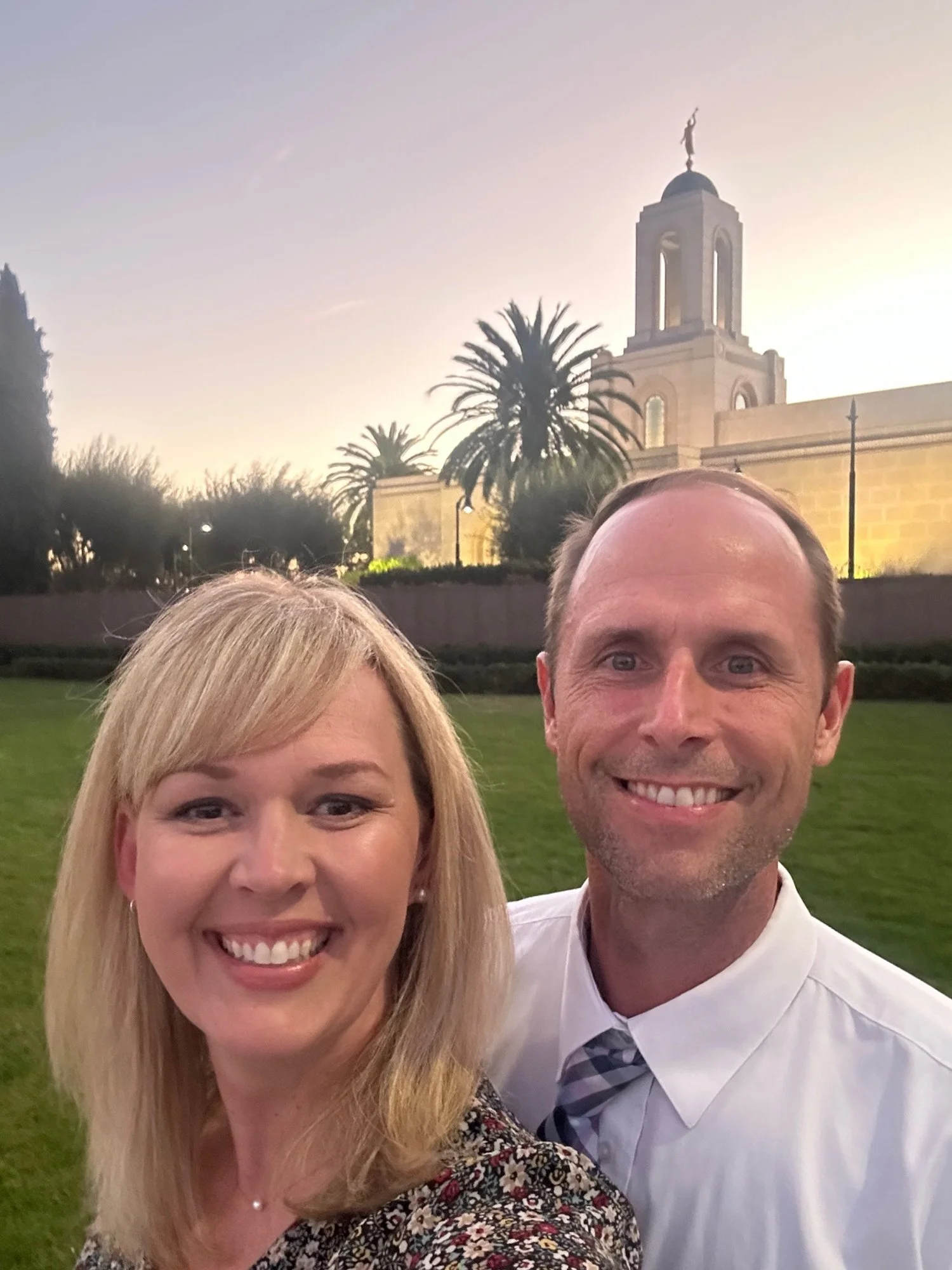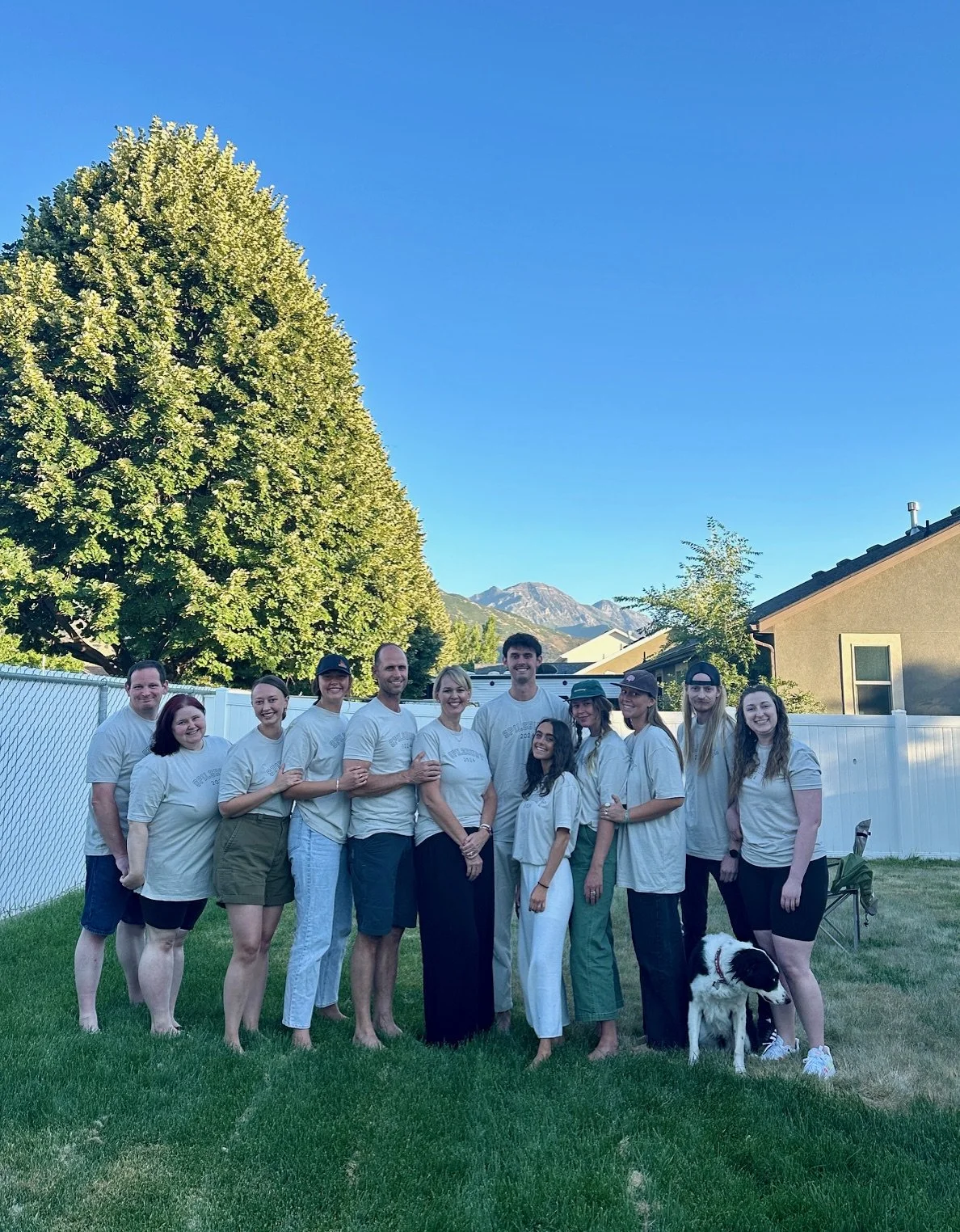Mesa, AZ councilmember Julie Spilsbury recently endured a hostile city meeting in which she was ripped apart for supporting a necessary utility rate increase of an average of $5 a month. While some surrounding communities experienced a much more significant 30% rate increase, many in her city (including several from her church community) still took her to task, yelling and taunting until the mayor had to demand they stop. Julie came home, had a good cry, and woke up the next morning at 5:45am to regroup with a solid distraction—a live news spot at a Turkey Tuesday food distribution. It’s an event that provides turkeys to 2,000 families in need at the holidays and something Julie loves participating in every year for the United Food Bank. “I needed it that morning, to believe in humanity. In this job, I see the best and the worst of humanity.”
While last month’s council meeting was difficult for Julie, her most brutal public revolt took place in January of 2021, the first month of her tenure. After Julie, who identifies as a super-ally, was elected the prior August, the mayor forewarned Julie he’d be putting forth a non-discrimination ordinance. The bill would bar discrimination for the LGBTQ+ community with housing, employment and public accommodations—meaning trans individuals could use the bathroom of their choice. It was a bill that angered the far right, and even the far left was upset, claiming its “religious protections” language still allowed “plenty of opportunities to discriminate.” Julie says that was an essential inclusion to achieve concession, and that, “When you know the far right and the far left are mad, you’re in a pretty good place of compromise.”
While LDS church headquarters sent a letter of support for these AZ bills via the Area Seventy showing their support for the bill, the outcry against it among the LDS population was still significant and loud. From a city with a population of 520,000, Julie received over 900 angry emails—a far uptick from the 60 or so emails normally generated by a controversial issue. The letters quoted the Family Proclamation, scriptures, and included many accusations that various people—including Julie—would be “going to hell.” Again, Julie marveled at this result over something the LDS church specifically showed support for, much as they have more recently for the US Respect for Marriage Act. Three members of the council had already joined the mayor in supporting the bill, achieving a majority, so technically Julie’s vote wouldn’t sway things one way or another, but all eyes were on her—the religious conservative mother, new to the council. She says she has never regretted voting to support the bill, and was told her action made the most difference to the LGBTQ+ community.
Julie is a paradox to many in her community. She says her large family is ”as Mormon as it gets,” with her husband having served as bishop and five of her kids having served missions. While she comes from a traditional, conservative background, in 2019, she says God started working on her family in regards to the LGBTQ+ experience, leading Julie, her husband Jeremy, and their kids to “listen to all the podcasts, read all the books, and open up to all things LGBTQ+.” During this time, Julie says, “My heart was broken open, giving me a greater capacity to love. Having my heart exposed to the LGBTQ+ community, I have not been the same person since, in all the best ways.” She just didn’t realize how this transformation, which ultimately softened her to all marginalized groups, would result in so much negativity from her church and city community. She says, “I love having people like me, and to have all these people think I’m evil is hard. I have a huge heart and I promise I really am nice. I’m the one who brings cinnamon rolls to city meetings!”
Julie says she grew up a “choir geek” with many LGBTQ+ friends. In hindsight, she claims she still believed many of the myths about gay people back then—but her tutelage, especially courtesy of Richard Ostler’s podcast and books, showed her she perhaps held some misconceptions. She says, “The LGBTQ space is so complicated, hard, and painful, and I also think it’s where Jesus is. That’s why I choose to be in this space—where I feel the most love and the most authentic to who I want to be as a person. There are few things I feel this compelled to be a part of.”
The Spilsbury brood included Lydia—18, Lauryn—21, Brigham—23 (who is married to Tess), Cambryn—24, Miranda—26 (married to Jacob, and an adopted daughter who’s lived with the Spilsburys since age 11), Maybree—26, and their “bonus daughter,” Michelle— (married to Abe). Several of the Spilsbury kids have also chosen advocacy fields, with Lauryn, who just returned from a mission to Spokane and who speaks Swahili, now working with African refugees. Cambryn is getting a Masters in Social Work in Chicago and Maybree is completing her Masters Degree in Conflict Transformation in Virginia. Julie’s husband Jeremy is a long-time arborist and recently sold their tree company and went back to school himself to study Peace and Conflict, and now wants to create a Peace and Conflict curriculum for high schoolers.
The Spilsburys are grateful their allyship is a shared family value, with Julie saying, “It’s been fun to have all my kids be like-minded together in this space. We’re definitely not perfect, but we do have massive love. And we do struggle with things—when General Conference is hard, I love how we can talk about it. Some of my kids struggle with the church, and yet the gospel is part of our cellular structure—not just a Sunday thing. I’m grateful we can talk about all the itchy things and keep open communication.” Julie says that more than anything, she’d prefer her kids be “deep human beings who care deeply about others with true intent than to be people who go to the temple every week but don’t do that.”
After hearing so many stories of struggles faced by the LGBTQ+ community, Julie is now very intentional about her allyship. Of local friends like Michael Soto, Julie says, “They have changed my heart and soul. I have many trans friends, and it all started with this experience.” She joins an ally group on the first Sunday of every month, and has helped support a friend assemble a choir of queer participants who have left the LDS church, but who miss singing the hymns. She says, “I tend to say yes to anything I can in this space.”
Julie wears a rainbow pin to church, and has a rainbow as her screensaver on her phone, saying, “I want my Young Women I work with to know I’m a safe space. Unless you say something, people don’t know. And it’s hard to assume anyone’s safe these days—too many times, these kids get burned and can’t trust anyone.” When her husband, Jeremy, was serving as bishop and they made it clear where they stood, many youth who had left the church because they identify as LGBTQ+ started coming over and coming out. Back in 2021, as they started receiving backlash, Jeremy said to Julie, “Oh my gosh, can you imagine what we’re feeling, and we don’t even have a gay child or are gay ourselves?” A former young woman Julie had worked with who later served a mission came out to Julie and Jeremy and opened up about her struggle deciding whether she should marry her best friend (a female who was living in another country) or stay in Arizona and continue working in the temple as she loved the church. Julie says, “I just got to be there and sit with her through it. I’ve said so many times, if for no other reason did I go through this experience so that I could be there for that one person, it would be worth it. It was incredible to get to mourn with her, cry with her, and feel all the feelings.”
While the past month has been rough as Julie has joined the many struggling with very real emotions stemming from recent election results, especially amid “the bubble” where she lives and attends church, Julie is more motivated than ever to pursue and lead with goodness. She trusts, “Jesus will win in the end.” She joins a group of 20-30 Mesa-based women ready to activate and change individual lives in their community. She says, “We’re looking for ways to serve. I don’t want to be all doom and gloom, but it’s hard to feel it’s all going to be fine. But I don’t want everything to implode, because I care about our country.”
As she moves forward, serving in her various communities, Julie cleaves to a favorite quote from Sam Norton’s book, Come as You Are: “Love that doesn’t try to change you is what changes you.” Julie concurs, “If treating people with love and respect is what makes me evil, so be it. I’m not going to change. I feel all of this very deeply.”


















